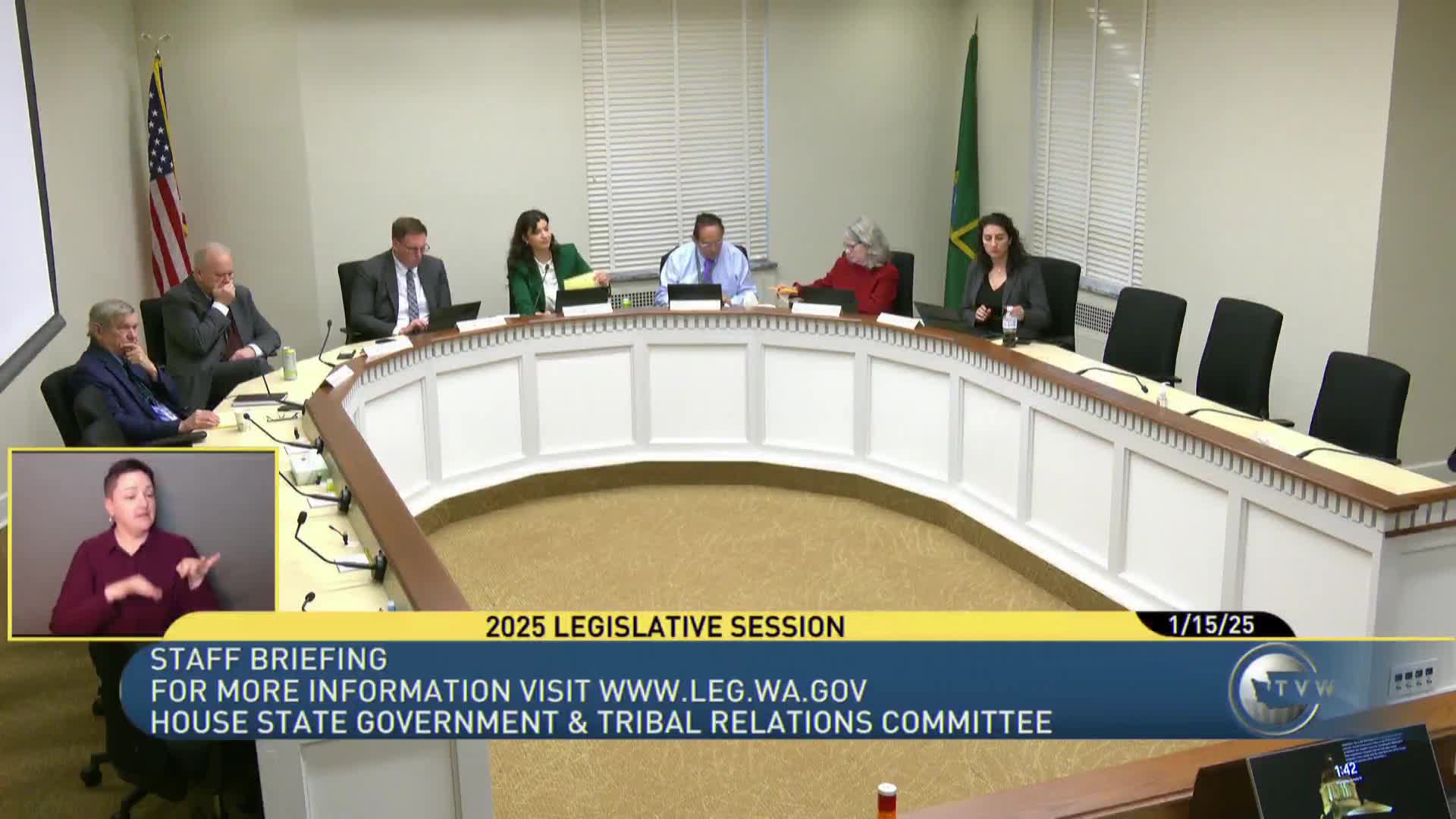Legislature hears broad support for bill to protect civic engagement rights of incarcerated and institutionalized people
Get AI-powered insights, summaries, and transcripts
Subscribe
Summary
The State Government & Tribal Relations Committee on Jan. 15 heard hours of testimony on House Bill 1147, a proposed substitute that would establish a legal right to civic engagement for people who are incarcerated or detained in state hospitals and other state‑operated facilities.
The State Government & Tribal Relations Committee on Jan. 15 heard hours of testimony on House Bill 1147, a proposed substitute that would establish a legal right to civic engagement for people who are incarcerated or detained in state hospitals and other state-operated facilities.
The substitute, described by Connor Schiff of the Office of Program Research as staff counsel to the committee, lists civic activities covered by the right — forming political advocacy organizations, communicating with community groups and elected officials, accessing meeting space, registering to vote, and participating remotely in hearings — and requires that any restriction be narrowly tailored to a compelling state interest. It also would create a civic engagement coordinator position in the Office of Equity and direct agencies to implement an accountability process for transparency.
Supporters — many with lived experience of incarceration or institutionalization, advocates and several nonprofit organizations — told the committee the measure would connect isolated people to community supports and improve outcomes after release. “Community groups like Beyond These Walls help connect people with resources while incarcerated and with reentry needs like transgender reentry housing,” said Brian Glant, who identified himself as representing a Jewish and LGBTQ support group at Monroe Correctional Complex. “Please help facilitate successful rehabilitation and reentry by passing this bill,” he said.
Representative Farvar, the bill’s prime sponsor, told the committee the proposal grew from conversations with people with lived experience and agency feedback and was intended to make participation in civic life possible for “those who are the most isolated, most disenfranchised.” She said the substitute includes definitions of civic engagement and political organizations and aims to support agency ability to implement civic activities rather than simply impose requirements.
Agency witnesses expressed conditional support for the bill’s intent but raised logistics and resourcing concerns. Danielle Armbruster, assistant secretary for the Reentry Division at the Department of Corrections, said the department “wholeheartedly supports engaging incarcerated individuals in legislative discussions and civic engagement activities,” but warned the substitute’s definitions are broad and the bill does not account for limited space, staffing or funding. “Currently, we have a $38 million biennial shortfall in our approved staffing model because of unfunded changes to labor laws,” Armbruster said.
Kevin Bovekamp, assistant secretary with the DSHS Behavioral Health Administration, likewise said hospitals may not be designed or staffed to host civic organizing and asked for clarification around what constitutes political organizing and how it would be balanced with treatment and safety priorities.
The secretary of state’s office signaled willingness to assist implementation and noted an existing, small program to support civic access in institutions. Secretary of State Steve Hobbs said his office already maintains libraries in prisons, state hospitals and youth detention facilities and has staff — including a civic engagement employee, David Lund — doing related work, but that the position is not included in the governor’s current operating budget.
Civil-rights, advocacy and faith organizations spoke in favor, describing civic engagement as essential to rehabilitation and reintegration. “Being civically engaged increases empathy and connectedness,” said Alexis Hale, a resident at Echo Glen Children’s Center, testifying remotely. Disability Rights Washington lawyers Rachel Sievers and Chloe Marino said the bill would clarify and preserve ways advocates work with people inside institutions.
Opponents and some county organizations raised concerns about operational burdens and safety. Mary Long, representing Conservative Ladies of Washington, testified in opposition and said implementing the bill would require staffing and infrastructure changes that carry fiscal and security risks.
Committee members asked about program limits and agency readiness; multiple witnesses said they were available to work with the sponsor on amendments to narrow definitions, clarify scope, and address privacy, safety and staffing issues. Representative Farvar and department representatives said they had been working together and expected additional conversations.
The committee did not take a vote during the hearing. Testimony closed after an extended series of in‑person and remote witnesses representing people with lived experience, nonprofits, government agencies and faith groups.
